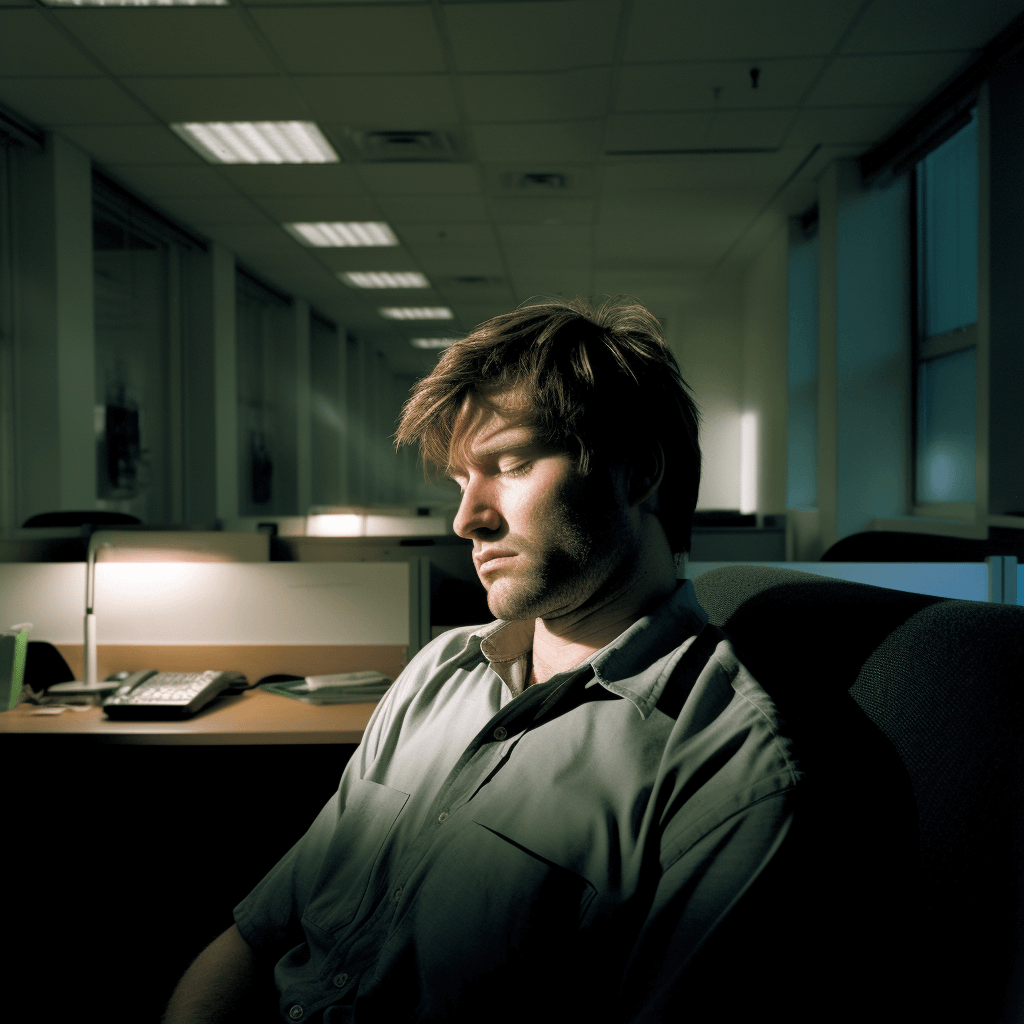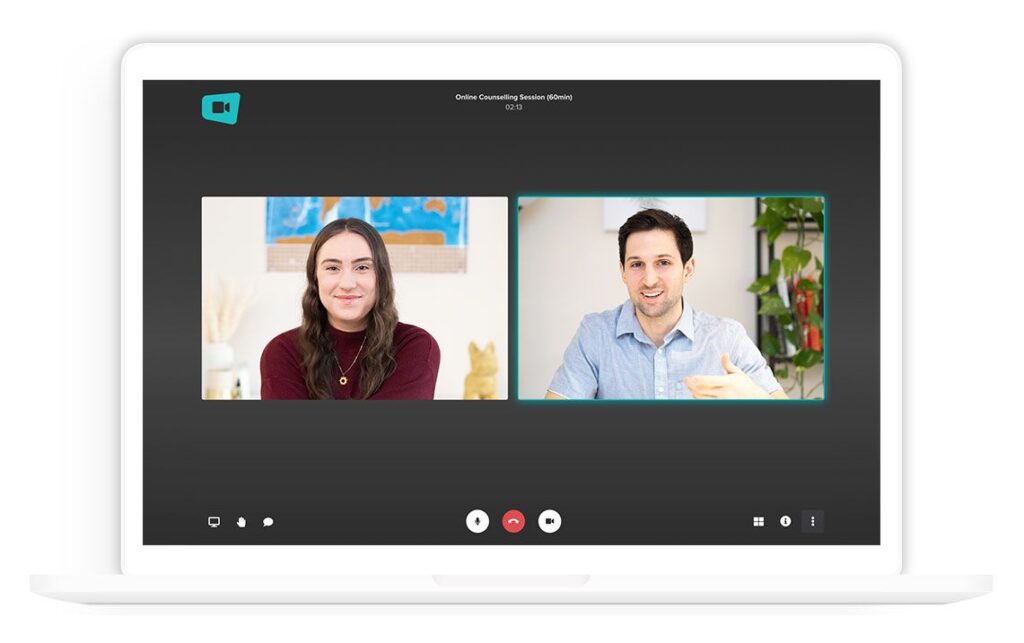Anxiety and Fatigue: Breaking the Vicious Cycle
Caught in the relentless grip of anxiety and fatigue? Discover how breaking this vicious cycle can unlock a new chapter of vitality and peace in your life.
Anxiety and fatigue are two common conditions that can significantly impact your life.
Do you ever feel like you’re constantly on edge? Like you can’t relax, even when you’re trying to? Or do you feel so physically tired that you can barely function?
It’s one of Canadian’s most common mental health conditions, affecting millions yearly. But what if these two conditions are connected?
Research suggests that anxiety and fatigue can feed off each other, creating a vicious cycle that can be difficult to break. For example, anxiety can lead to fatigue, making it difficult to cope with stress, leading to more anxiety. And fatigue can lead to anxiety, as it can make it difficult to think clearly or concentrate, which can then lead to more anxiety-induced fatigue.
If you are struggling, it is important to seek professional help. A therapist can help you identify the causes and develop a treatment plan.
Don’t suffer in silence. There is help available.

Understanding Fatigue and Anxiety
Fatigue
Fatigue is a state of extreme tiredness or exhaustion that can affect both your physical and mental well-being. It goes beyond the common physical symptoms of normal tiredness after physical activity or a long day at work. Fatigue can be chronic or acute, interfering with your ability to function and enjoy daily activities.
There are various causes and contributing factors that can lead to fatigue:
- Stress: High-stress levels can wear you down mentally and physically, leading to fatigue.
- Sleep disorders: Conditions like insomnia, sleep apnea, or restless leg syndrome can disrupt your sleep patterns and make you tired.
- Depression: Depression often saps your energy and motivation, resulting in fatigue.
- Chronic illness: Fibromyalgia, autoimmune disorders, or cancer can cause persistent fatigue.
- Burnout: An overwhelming workload or emotional exhaustion can drain your energy reserves.
- Medication side effects: Certain medications can induce tiredness as a side effect.
- Caffeine and stimulant use: While caffeine and stimulants can initially boost energy, excessive use or addiction can lead to fatigue.
- Perfectionism: The constant pressure to achieve perfection can result in mental and physical fatigue.
- Hormonal imbalances: Fluctuations in hormones, such as those experienced during menopause or thyroid disorders, can contribute to fatigue.
- Lifestyle factors: Poor nutrition, lack of exercise, or unhealthy habits can tire you.
Fatigue can have significant effects on both your physical and mental health:
- Impact on daily functioning: Fatigue can make it difficult to concentrate, make decisions, or perform tasks effectively.
- Relationship with other health conditions: Fatigue is often a symptom or side effect of other health issues, such as chronic pain, anxiety, or sleep disorders.
Anxiety
Anxiety is a feeling of unease, worry, or fear that can be a normal response to certain situations. However, when anxiety becomes excessive or persistent, it can be problematic and interfere with daily life.
Anxiety and fatigue often go hand in hand.
- Common symptoms and signs of anxiety: These may include restlessness, irritability, racing thoughts, difficulty sleeping, muscle tension, and feeling on edge.
Physical Signs of Fatigue
- Persistent feelings of tiredness and low energy
- According to a Canadian Mental Health Association study, fatigue is one of the most common anxiety symptoms, affecting up to 80% of people with anxiety disorders.
- Fatigue can be caused by several factors, including stress, poor sleep, and underlying medical conditions.
- Generalized muscle weakness or heaviness
- Muscle weakness is another common symptom of fatigue. It can make it difficult to perform everyday activities, such as walking, climbing stairs, or carrying groceries.
- Muscle weakness can be caused by several factors, including stress, poor diet, and underlying medical conditions.
- Difficulty initiating or maintaining physical activities
- People with fatigue often find it difficult to get started on physical activities. They may also feel tired or out of breath after only a short period.
- Difficulty initiating or maintaining physical activities can be caused by many factors, including stress, poor fitness, and underlying medical conditions.
What does fatigue feel like?
John felt like he was dragging his body through molasses as he tried to prepare for work. His limbs seemed to weigh a thousand pounds, and even simple tasks like brushing his teeth felt exhausting. All John wanted to do was crawl back into bed.
Emily’s fatigued muscles burned as she loaded the groceries into her car. Her legs wobbled like jelly, and her arms shook under the weight. She had to pause every few bags to catch her breath.

Start sessions instantly— no logins or passwords required. Stress-free and easy to use.
Emotional Signs of Fatigue
- Increased irritability or mood changes
- People with fatigue may experience increased irritability or mood changes. They may become easily frustrated or angry, and their mood may fluctuate more than usual.
- Lack of motivation or decreased interest in activities
- People with fatigue often lose interest in activities that they used to enjoy. They may also find it difficult to concentrate or focus on tasks.
- Feeling drained or emotionally exhausted
- People with fatigue may feel drained or emotionally exhausted. They may feel like they have no energy left at the end of the day and may find it difficult to cope with stress or difficult situations.
Example (Emotional)
Maria snapped at her kids over minor things, like spilling a glass of milk. She immediately felt guilty but couldn’t gather the energy to be patient. The smallest disruptions set off her frayed nerves.
David stared blankly at the TV, devoid of interest or joy. Activities that used to excite him now seemed meaningless and dull. A heavy melancholy clouded his mind.
Cognitive Signs of Fatigue
- Difficulty concentrating or focusing
- People with fatigue often have difficulty concentrating or focusing. They may struggle to follow conversations, read, or complete tasks.
- Slowed thinking or processing information
- People with fatigue may experience slowed thinking or processing of information. They may find it difficult to make decisions or solve problems.
- Memory problems or forgetfulness
- People with fatigue may experience memory problems or forgetfulness. They may forget things they have just learned or have difficulty remembering appointments or events.
How does fatigue affect your concentration?
No matter how hard she tried, Lisa couldn’t focus on the text before her. The words blurred together on the page, incomprehensible. She read the same sentence 5 times but still had no idea what it said.
Mark’s thoughts felt sluggish like they were wading through mud. When his boss asked him a question, formulating a coherent response took a frustratingly long time. Basic problem-solving felt impossible.
How Fatigue Affects Life
Here are some additional ways that it can impact a person’s life:
- Work and school: It can make it difficult to focus and concentrate, leading to problems at work or school. People with anxiety or fatigue may struggle to meet deadlines or participate in activities requiring much energy.
- For example, Sam was so exhausted from his anxiety that he slept through several morning meetings and didn’t finish an important presentation for a client.
- Relationships: Anxiety and fatigue can strain relationships. People with anxiety or fatigue may be irritable or withdrawn, making it difficult to connect with others. They may also have trouble maintaining relationships because they are too tired or stressed to socialize.
- For example, Emily was so on-edge and tired from her anxiety that she started avoiding her friends and snapping at her boyfriend over small issues. She became isolated.
- Sleep: Anxiety and fatigue can both disrupt sleep. People with anxiety may have trouble falling or staying asleep, and people with fatigue may sleep more than usual. This can lead to problems with concentration, energy levels, and overall well-being.
For example, John struggled with anxiety that made it difficult to fall asleep and caused him to wake up frequently at night. He was only getting 3-4 hours of poor-quality sleep per night. This sleep deprivation left John exhausted during the day, further contributing to his anxiety. He felt trapped in a vicious cycle of stress and fatigue, severely impacting his ability to function.
Fatigue and Anxiety Disorders
Generalized Anxiety Disorder (GAD)
Generalized anxiety disorder (GAD) is a type of anxiety disorder characterized by excessive worry and anxiety. People with GAD often worry about various things, such as their health, finances, relationships, and the future. This worry can be so excessive that it interferes with daily functioning and quality of life.
Fatigue is a common symptom of GAD. People with GAD often feel exhausted, even after a good night’s sleep. This fatigue can make it difficult to focus, concentrate, and decide. It can also lead to problems with relationships, work, and school.
Illustration of how fatigue affects daily functioning and quality of life
Fatigue can significantly impact people with GAD’s daily functioning and quality of life. People with GAD who experience fatigue may find it difficult to:
- Concentrate or focus
- Make decisions
- Complete tasks
- Participate in social activities
- Take care of themselves
Statistics on the prevalence of GAD in Canada (cite relevant Canadian health studies)
According to the Canadian Mental Health Association, about 2.5% of Canadians have GAD. This means that approximately 750,000 Canadians have this condition.
Other Anxiety Disorders
Fatigue can also be a symptom of other anxiety disorders, such as panic disorder, social anxiety disorder, and specific phobias.
- Fatigue in Panic Disorder:
- Panic disorder involves unexpected panic attacks and persistent worry about future episodes.
- 72% of Canadians with panic disorder experience debilitating fatigue (Anxiety Canada, 2021).
- Example: Sara, 32, feels exhausted after each panic attack she experiences while driving to work. The fatigue makes it hard for her to concentrate on her job.
- Fatigue in Social Anxiety Disorder:
- Social anxiety disorder involves anxiety and fear of social situations due to worries about evaluation.
- Up to 75% of people with social anxiety disorder report fatigue (CAMH, 2019).
- Example: Mike, 41, feels extremely tired after attending a work social event, making it hard to be productive the next day.
- Fatigue in Specific Phobias:
- Specific phobias involve excessive fear related to a particular object or situation.
- Example: Ever since being bitten by a dog, Olivia, 25, feels exhausted whenever she is around dogs, including her friend’s puppy. The fatigue lasts for hours afterwards.
Treatment Options
We recognize how debilitating anxiety-related fatigue can be and want to provide hope through proven treatment options. Our clinical team has extensive experience helping clients manage anxiety disorder symptoms, including fatigue.
Therapy Approaches That Can Help
- Cognitive Behavioural Therapy (CBT): This well-researched modality helps identify and modify unhelpful thought patterns that worsen anxiety. We use CBT techniques such as cognitive restructuring and behavioural activation.
- Acceptance and Commitment Therapy (ACT): This approach builds willingness to accept difficult feelings while committing to valued actions. It can alleviate struggle with anxiety symptoms like fatigue.
- Stress Management: We teach research-based stress management skills to reduce anxiety triggers and manage symptoms like fatigue. This can include relaxation techniques, time management, and lifestyle changes.
- Mindfulness: Becoming more present-focused through mindfulness practices can lower anxiety and boost energy levels. We offer mindfulness training tailored to each client’s needs.
Supporting You on Your Journey
Our compassionate therapists partner with you to determine the best treatment plan for your unique situation. We draw from proven modalities tailored to your needs and preferences. Together we can break the chronic anxiety-fatigue cycle so you can reclaim your whole health and life.
Real World Examples
- Jamie, 48: Working with her therapist to adjust unhelpful thought patterns about work stress, Jamie improved her anxiety. She learned to challenge fears of failure and regain motivation.
- Deven, 22: Through ACT, Deven became more accepting of his anxiety symptoms while pursuing his academic goals. He decreased his struggle with difficult feelings.
- Reshma, 33: By establishing better sleep habits, exercising, and using mindfulness, Reshma reduced her daily fatigue related to generalized anxiety disorder. She felt more energetic and in control.
We are here to support, encourage, and empower you. You can take back your life from anxiety-related fatigue with proven therapy approaches. Please reach out if we can help guide your healing journey.
Seeking Help for Fatigue
If you are struggling with fatigue related to anxiety, it is important to seek professional help. A therapist or other mental health professional can help you understand the causes of your fatigue and develop a treatment plan for you.
Contact information for Canadian mental health resources and helplines:
- Canadian Mental Health Association: 1-833-456-4566
- Kids Help Phone: 1-800-668-6868
- Crisis Services Canada: 1-833-456-4566
- Mental Health Hotline: 1-866-585-0445
Get matched with a counsellor that fits your needs.
How we can help
We offer various services for people struggling with anxiety-induced fatigue, including individual and couples therapy.
We understand that seeking help for mental health can be daunting. We are here to provide you with the support and guidance you need to improve. Contact us today to learn more about our services.
Fatigue and Anxiety: A Summary
- The persistent state of worry can be both physically and emotionally draining, often leading to conditions like insomnia that further exacerbate feelings of exhaustion.
- This constant worry can also trigger adrenal exhaustion, leading to a profound sense of weariness even when adequately rested.
- There are numerous symptoms and complications associated with this state of constant worry that can contribute to exhaustion.
- One of the most recommended strategies for combating this exhaustion is improving “Sleep Hygiene”.
- Working with a therapist can provide the necessary tools and techniques to manage these feelings and improve overall well-being.
No matter what you are struggling with, we are here for you.
No matter what you are struggling with, we are here for you.

Pareen Sehat MC, RCC
Pareen’s career began in Behaviour Therapy, this is where she developed a passion for Cognitive Behavioural Therapy approaches. Following a Bachelor of Arts with a major in Psychology she pursued a Master of Counselling. Pareen is a Registered Clinical Counsellor (RCC) with the BC Association of Clinical Counsellors. She specializes in CBT and Lifespan Integrations approaches to anxiety and trauma. She has been published on major online publications such as - Yahoo, MSN, AskMen, PsychCentral, Best Life Online, and more.


